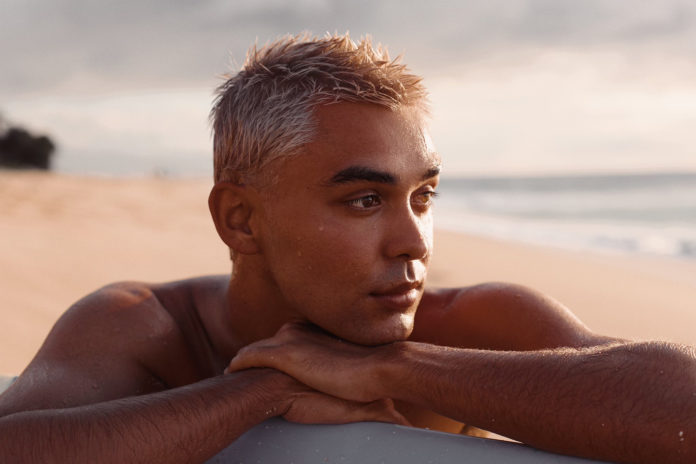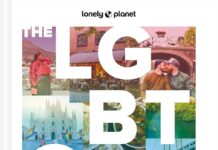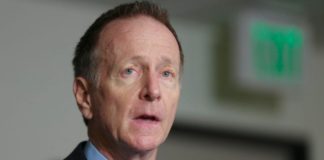The ocean is for everyone. But the surf culture isn’t. Just paddling out will tell you that. There’s the lineup, sitting in judgement — do you belong, or don’t you? Pride Month made us think about all that — so we asked four prominent LGBTQ+ surfers about their experiences coming out in the lineup, and below are their stories.
***
Makoa Ho, 25 years old, son of late Derek Ho, model, freelance photographer and filmer, aspiring actor, splits his time between the North Shore and LA
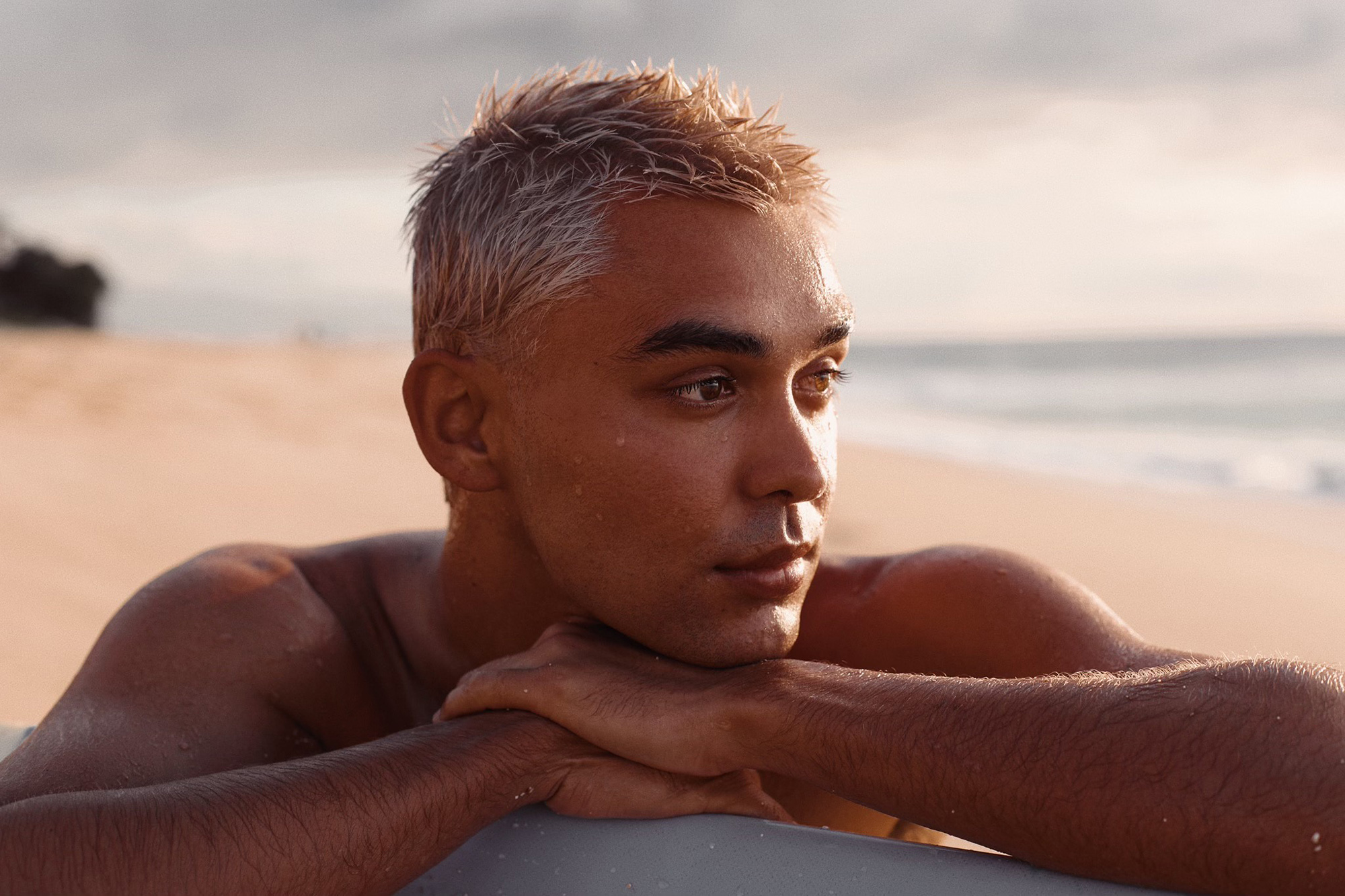
Makoa Ho. Photo: Amber Mozo
“Growing up on the North Shore of Oahu, I didn’t see myself in the surfing world. There were no gay male surfers when I was a kid. I just felt like I was living this lie. And it took me actually falling in love with someone to really be okay with who I was. And I think once I felt that just overpouring of love and affection and acceptance, I was like, ‘Oh, I can do this. I’m happy.’ If I’m happy, then nothing else matters.
“I think the surfing world cares for me and my family, but I think it was a bigger deal in my head than it was. As far as I know, everyone’s pretty accepting. But I do feel passionately about being that figure or role model for other kids in the surfing world, because there was no one for me to look up to, and there’s not much talk about it. I’m curious as to what people actually think if the conversation were to be sprung upon them. Like, ‘Okay. Well, let’s get into it. How do you actually feel?’ So things like this article you guys are doing is pretty amazing, actually.
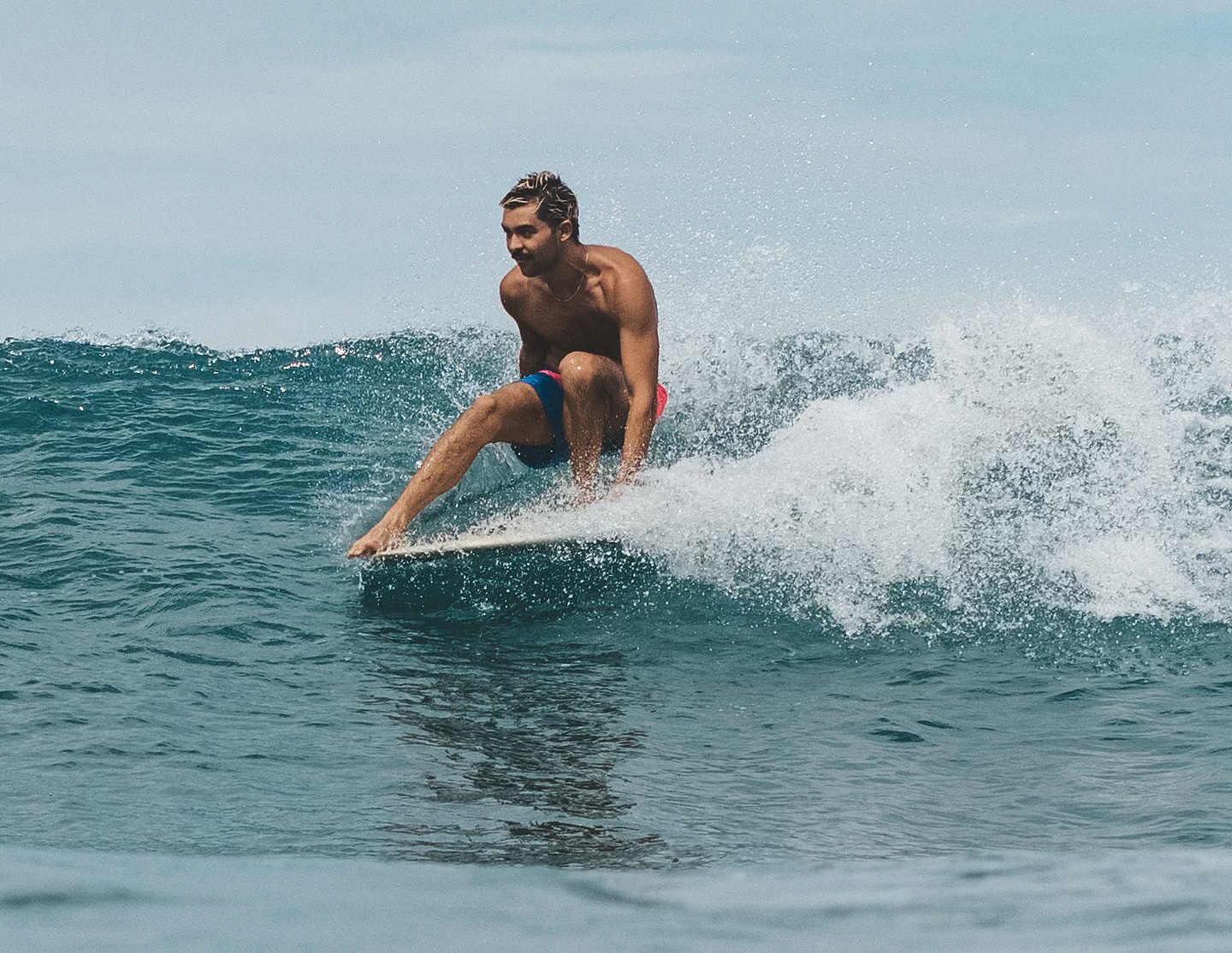
Makoa Ho. Photo: Tommy Pierucki
“Everyone in my family just exudes the surfing world. So on that end of the spectrum I’m so accepted, obviously. But then on this other end of the spectrum, it’s almost like I’m an outsider. I’m the black sheep of the surfing world. So it’s so contradictory in itself. And I was always like, ‘Hey, so am I part of this surfing community or not?’
“I think it’s important to understand how far we’ve come in this movement. I want gay surfers to not feel discouraged, because even though homophobia still exists, there’s actually so much support, and that’s something I’m still getting used to. As I’ve gotten older and more open with my sexuality I’ve realized my peers don’t just accept me but they encourage me, especially the upcoming generation. They are so aware!
“That being said, there’s much more work to be done. I’d like to see us as a surfing community break the pattern of thinking, ‘He’s a great surfer—for being gay.’ Surfing ability and sexuality are two separate qualities. All in all, we’re headed in the right direction. I’m proud of us!”
***
Keala Kennelly, 42 years old, former WCTer, Triple Crown winner, big-wave pioneer, from Kauai
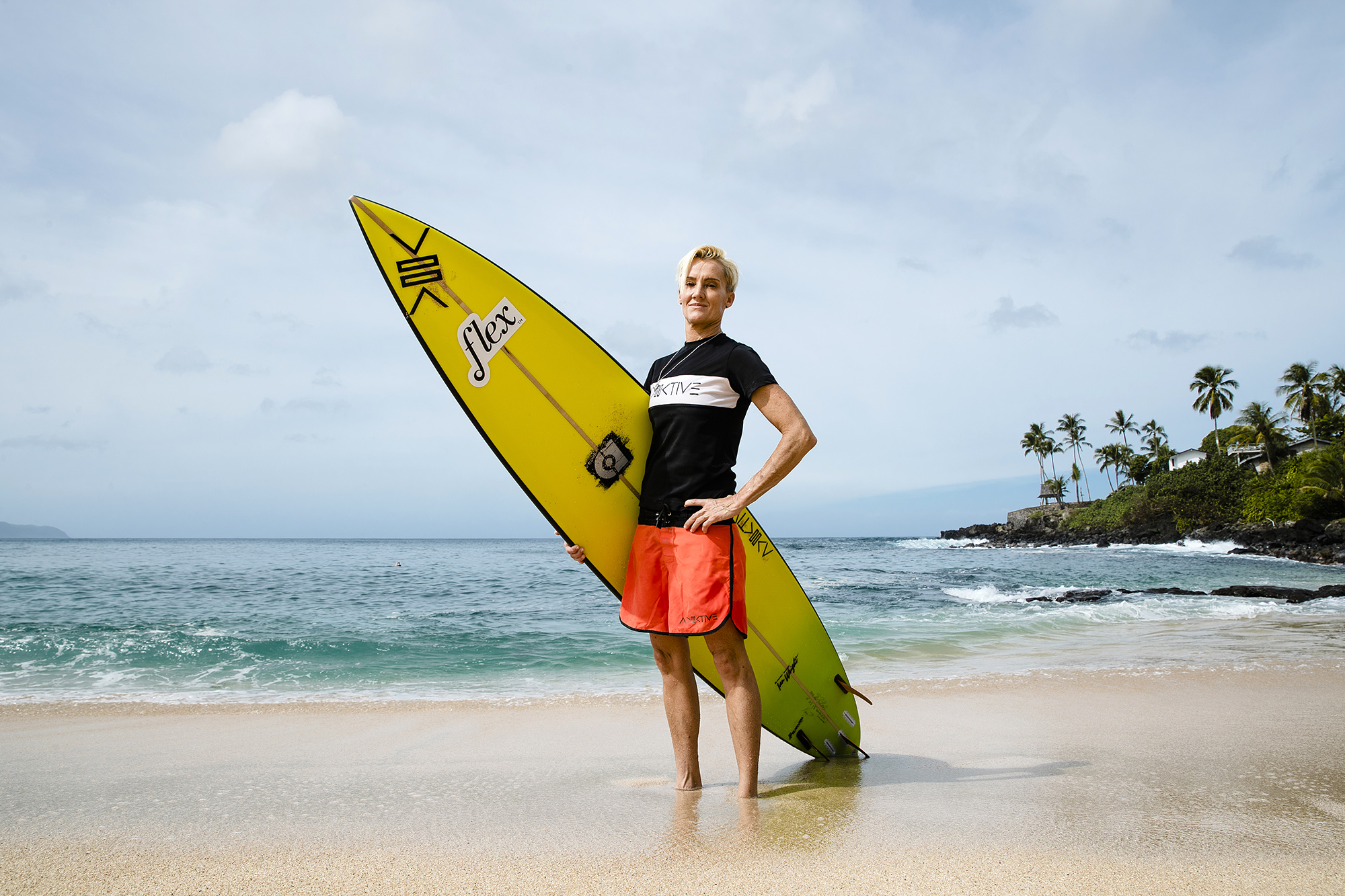
Keala Kennelly. Photo: Alana Spencer / Red Bull Content Pool
“It was rough. Even before I got on tour, there were these cautionary tales, like, ‘Whatever you do, don’t be a lesbian. You won’t have a successful career if you’re a lesbian.’ There was this sentiment that lesbians weren’t welcome, they weren’t what was wanted in the sport. And so, when I qualified for the tour, I was terrified; I ran out and got a boyfriend immediately.
“During my years on tour, it was like a witch hunt to find out who was a lesbian. And that was coming from the women and the men. It felt like your life was under a microscope. ‘Lesbian’ was one of the most derogatory terms you could call someone on tour. If the guys could call you that, it was almost like it discounted your talent. It was a way to discredit how well you surfed as a woman, because, in their eyes, you were trying to be like a guy. It was a gnarly putdown.
“Towards the end of my time on tour, I started to come out. I didn’t care anymore, and I started bringing my girlfriends on tour with me. The response didn’t change, though. It was like being in high school. It was this huge rumor, and everyone on tour was talking about it. It was a big deal that someone was out and not hiding it. It was such a burden. I lived in fear my entire CT career.
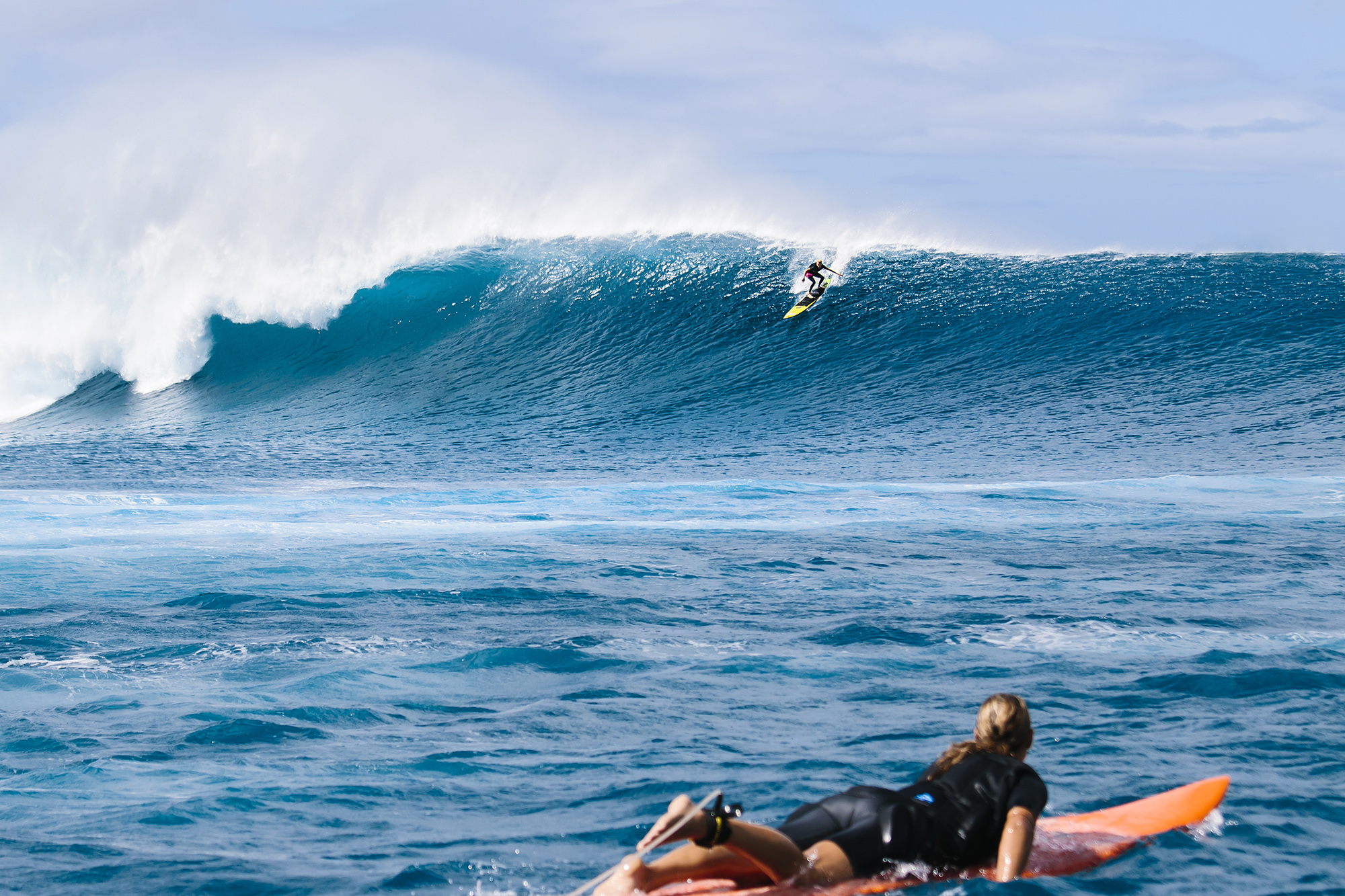
Keala Kennelly. Photo: Christa Funk / Red Bull Content Pool
“It was emotionally damaging. I had a lot of internalized shame and homophobia. I hated myself for being this way. The lying was so hard. It felt wrong to just flat-out lie to people. Just…soul-crushing. It was a really lonely existence; the tour is really cliquey, and I felt like this outsider. I’d go out on tour, compete, have this fear the whole time and, as soon as I was done, I wanted to go numb myself. I’d fly to cities and just go party to numb myself from the experience. It was total self-medication because it was so hard to deal with that stuff.
“The world has definitely changed a lot in the last 10 years, but sports have been a bit slower – and surfing especially for some reason. Every other sport – like basketball, football, baseball – they’ve all had men come out as gay. Imagine how hard that was for a football player. Bottom line: I think surfing has come a long way, but it still has a long way to go.”
***
Craig Butler, 27 years old, 7-time Irish national longboarding champion, born and raised in Tramore, Co. Waterford
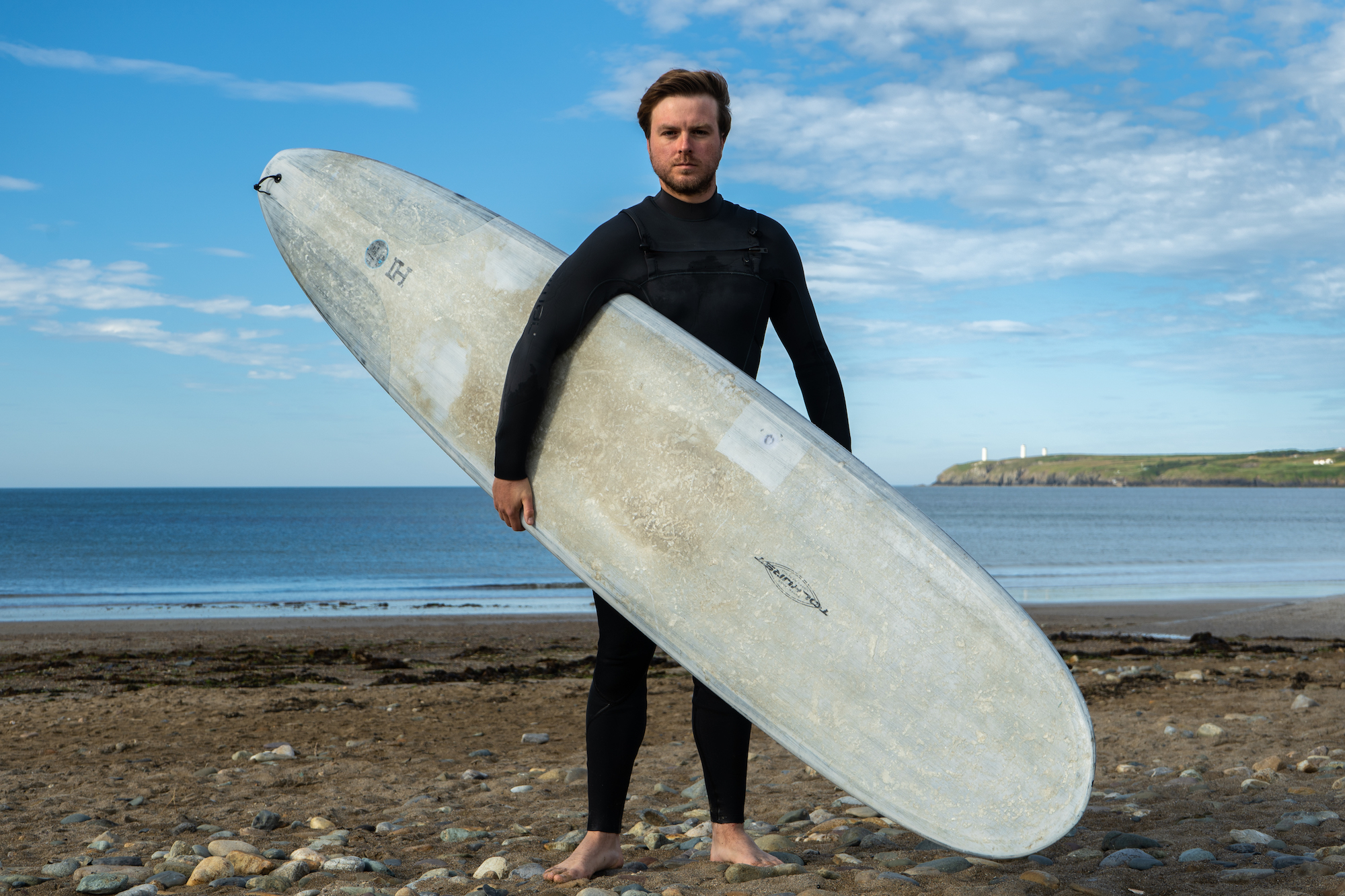
Craig Butler. Photo: Kevin Doyle
“When I came out as gay to my friends during a surf trip, we spent the night laughing and fist bumping. They felt empathy towards how I was living my life, whilst in the closet, and it was a celebration. For some of my close friends, they were slightly pissed — because they couldn’t understand why I spent my years as a grom in the closet, too afraid of how they might react, when really, they had nothing but love and acceptance for me.
“I remember asking them ‘what will I do when x, y and z found out’ and if they didn’t accept me — they reassured me that it will never be a problem, and if it ever did become a problem to someone, then that has nothing to do with me. They stayed true to their word and I have never encountered unacceptance in the water. The Irish surfing community welcomed my sexuality with open arms and it was an incredible the amount of love I received from surfers all over the country.
“But I can’t lie, that love feels like it’s gone in recent times. I’ve been going through an identity crisis and feeling sh** due to my sexuality. Maybe the world was just a more acceptant place back in 2015? It wasn’t, it was the exact same, as pointed out to me by a friend. It’s just now social media is more prevalent and people can hide behind cloaks of anonymity and say whatever they like, without worrying about the consequences.
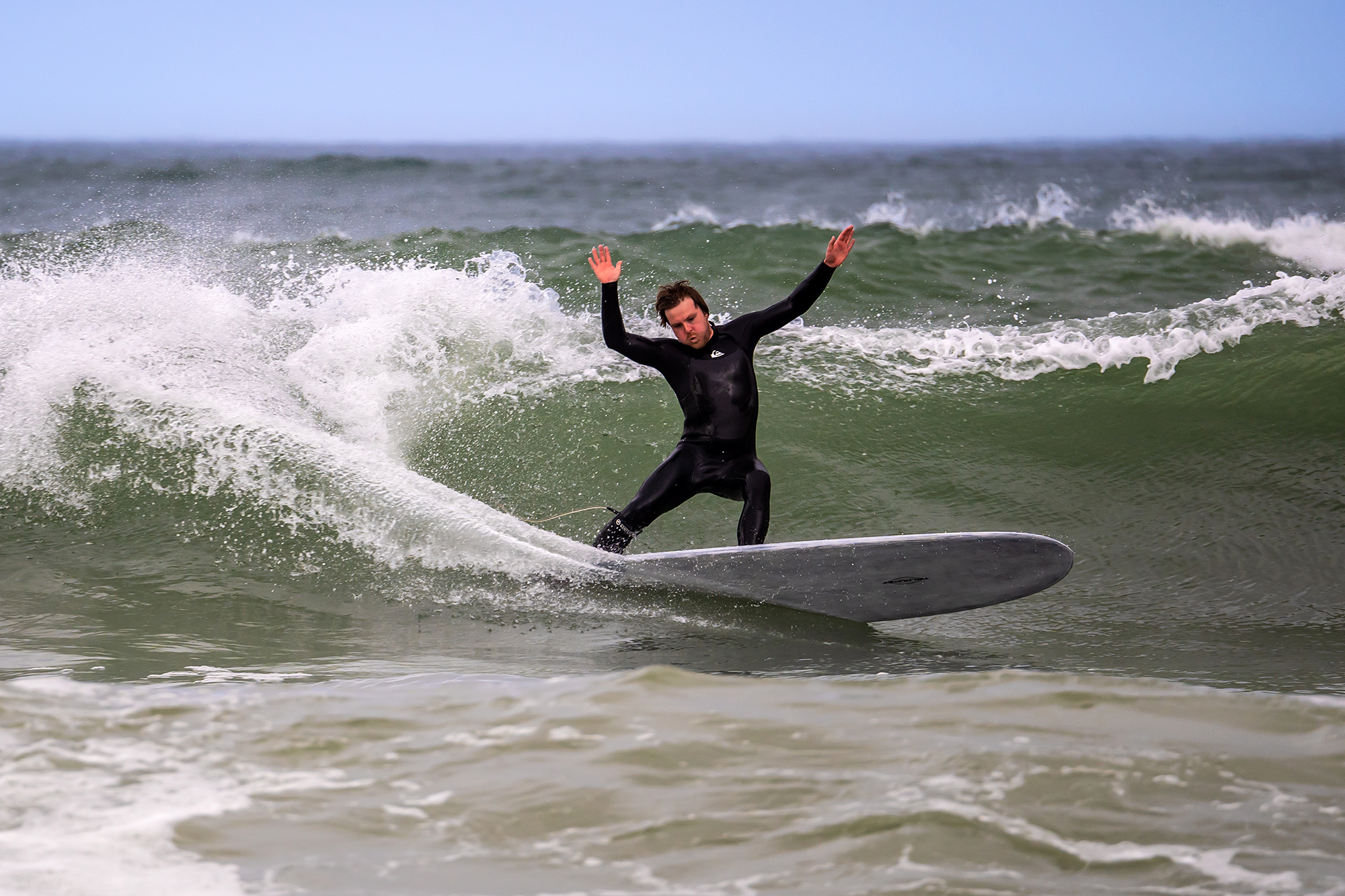
Craig Butler. Photo: Kevin Doyle
“Unfortunately those consequences are very real in the LGBTQ community, more specifically the LGBTQ surfing community. It’s hard enough worrying about throwing down the best turn or doing the best air — now people have to worry about the guilt and shame that accompanies being locked in the closet and not being accepted by peers. The suicide rates are high among LGBT youth due to people thinking there are no consequences to publishing a sh***y article conducting a gay witch hunt of the top 32 or commenting ‘we don’t care.’
“The world and surf community is still the loving and accepting place that it was six years ago — just unfortunately, these trolls now have a voice due to having a social media account. But that doesn’t mean that you are loved and accepted any less, or it’s going to change people’s mind about you. You do you in this life; if you’re a good person and you shred, then people are more concerned about that than about who you love.”
***
Pauline Menzcer, 50 years old, 1993 world professional surfing champion, originally from Bondi, Australia, now lives in Byron Bay, bus driver.
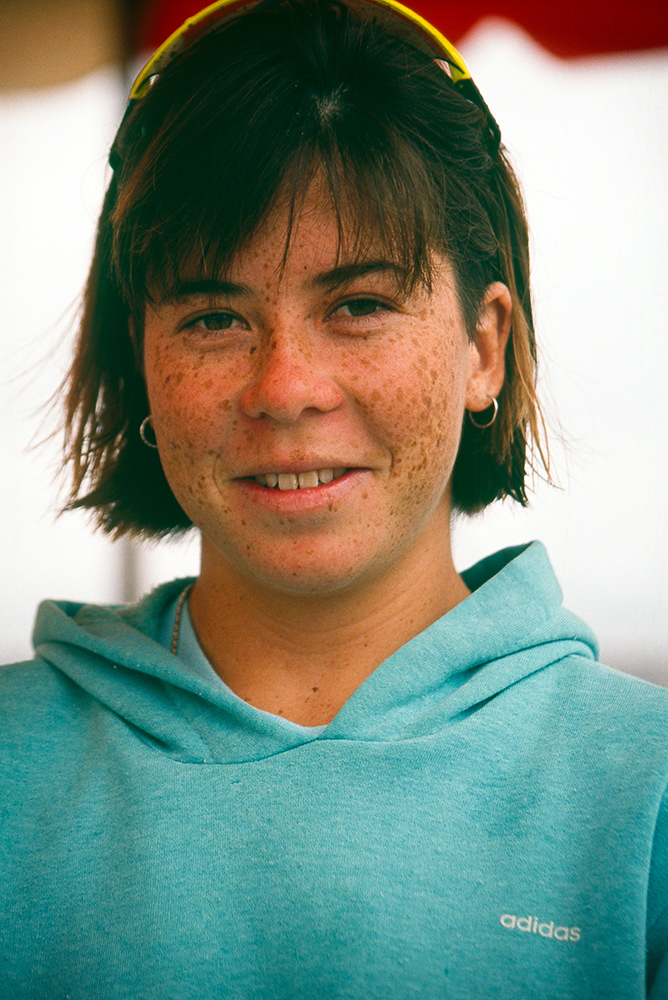
Pauline circa 1990 – just a kid starting out. Photo: joliphotos.com
“When I first got on tour, just being a woman was pretty hard, but it was way more about being gay. That was way harder. When I first got on, nobody knew I was gay. I didn’t even know myself back then. I think I was 21 before I realized. When I told my mum she just turns around and says, ‘If the birds and bees can do it, I don’t see why humans can’t.’ I went, ‘Oh my god, mum, I was so nervous to tell you…and that’s your response?’ I just burst out laughing, but that wasn’t easy.
“On tour was different. I watched how the other gay women got treated and even saw how the other female surfers treated them. It wasn’t just the guys. But it was society at the time I suppose. It could be really heavy to be gay. I grew up in the ‘80s and ‘90s and I’m hearing about all these gay murders. A guy who lived five doors up from us in Bondi was pushed off North Head.
“The fact I was gay on Tour wasn’t really an open secret. In the beginning I was very quiet about it. In the end though, because I could see I was really accepted and people wanted to accept me for who I was, I didn’t hide it, but that took a long time. I never felt comfortable holding my girlfriend’s hand or anything like that at the beach and I’m still affected by that today. When my partner and I go into the pub we never walk in holding hands.
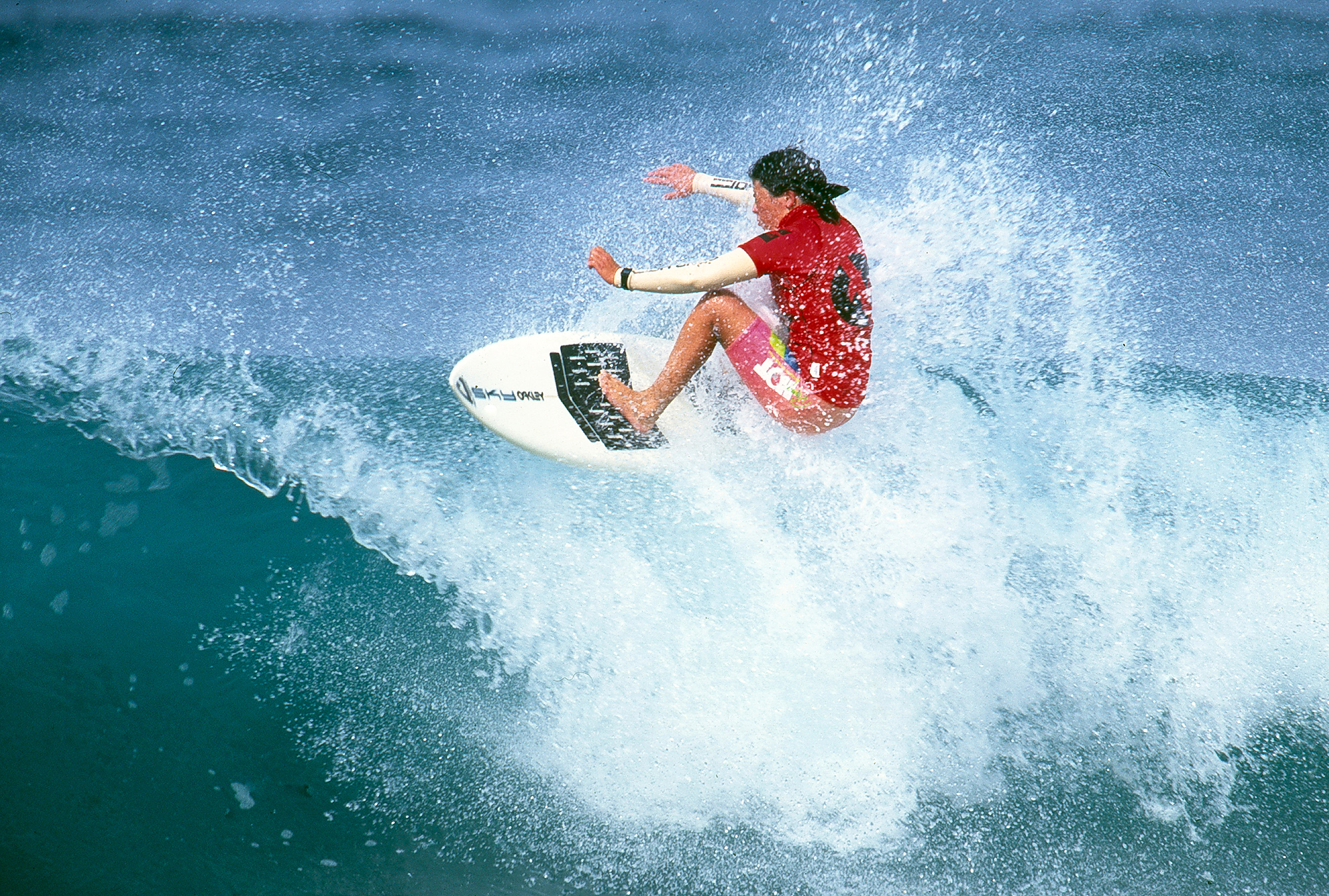
Pauline winning Bells in 1992. Photo: joliphotos.com
“The surf industry definitely knew I was gay. The only sponsors I got were with people who didn’t know. But there were two things. It was being gay, but they outright told my coach that I don’t have the look that they wanted. I didn’t have the blond hair and blue eyes. That’s why I jokingly cut my hair short and dyed it blonde. And then I thought, you want someone who stands out? So I dyed my hair blue and got a mohawk. I won the US Open with a blue mohawk. Being gay didn’t help in heats either. Whenever there was a close heat, we never won.
“All the gay surfers on tour, it affected them so much — even me. I’m very forward and can just talk to everyone like I’ve known them for 20 years, but it hurt me. It hurt that every time I was getting interviewed they always asked, ‘So, do you have a boyfriend?’ And I’d just always say, ‘No, I don’t have time for them.’ And then here’s my girlfriend traveling around with me as my ‘coach’.
“The movie (‘Girls Can’t Surf‘) has really opened up a conversation. What we’re talking about today is because of the movie and it’s all perfect timing. This whole women’s movement is speaking up. And you know, all these things that have been left unsaid for so long, and now everyone’s starting to talk about them.”
*Interviews conducted by Jamie Brisick, Dashel Pierson, Jason Lock, Sean Doherty
***

